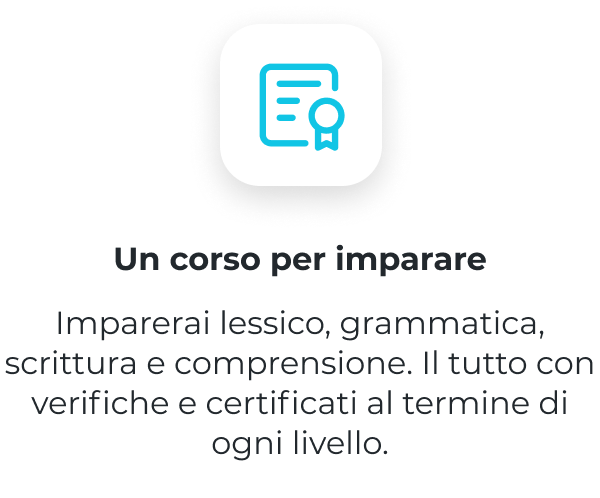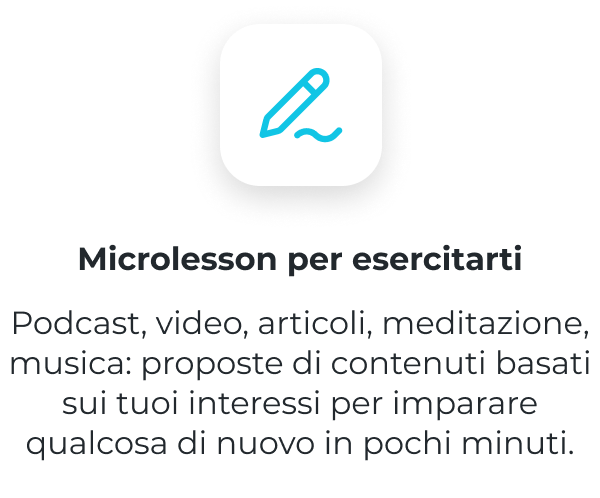Verbi modali in inglese
Cosa sono i verbi modali, cosa significano e come si coniugano? ABA English risponde a tutte le tue domande sui verbi modali in inglese.
Cos’è un verbo modale?
I verbi modali sono verbi irregolari ampiamente utilizzati nella lingua inglese. Servono a cambiare il significato di una frase poiché possono avere significati diversi.
Le loro caratteristiche principali sono:
- Non si coniugano (si usano all’infinito ma senza il to)
- Non hanno gerundio (non esiste coulding, musting, ecc.)
- Neppure hanno participio (non esiste musted, ecc)
- Modificano un altro(i) verbi.
- Esprimono abilità, certezza, bisogno, disposizione o obbligo, condizione o modalità.
- Nella loro forma negativa o interrogativa non hanno bisogno di un verbo ausiliare.
Esempio:
- My telephone must be broken. (Il mio telefono potrebbe essere rotto.)
In questo esempio, il verbo modale must modifica il verbo to be, indicando che sicuramente il telefono è rotto, esprimendo quasi una certezza senza verificarlo.
Registrati gratis e inizia
ora il tuo corso d’inglese.
Verbi modali in inglese
Condividiamo e spieghiamo il significato dei principali verbi modali usati in inglese, oltre ad alcuni esempi:
Can
Il verbo modale can si traduce come ‘potere’. Esprime abilità, capacità, possibilità.
Esempi:
- I can speak English. (So parlare inglese.)
- I can’t go to the park. (Non posso andare al parco.)
- Can you see me? (Mi vedi?)
Could
Il verbo modale could è il passato di can e significa anche possibilità. È più formale utilizzandolo per fare una richiesta.
Esempi:
- He could lend me some money. (Lui potrebbe prestarmi dei soldi)
- She couldn’t come to the party. (Non è potuta venire alla festa)
- Could you close the windows, please? (Puoi chiudere le finestre per favore?)
May
Il verbo modale may esprime possibilità o probabilità.
Esempi:
- We may go to the beach this summer. (Potremmo andare al mare quest’estate.)
- She may not pass the English test. (Lei potrebbe non superare il test di inglese.)
- May I turn on the lights? (Posso accendere le luci?)
Might
Quando usiamo il verbo modale might, parliamo di suggerimenti, possibilità, richieste e anche offerte.
Esempi:
- His father might come to the wedding. (Suo padre potrebbe venire al matrimonio.)
- They might arrive home late. (È possibile che arrivino tardi a casa.)
- Might I give you an advice? (Posso darti un consiglio?)
Will
Meglio conosciuto per il suo uso con il futuro dei verbi, il verbo modale will esprime anche le decisioni prese nel momento in cui vengono dette ed esprime anche l’intenzione di fare qualcosa.
La sua forma negativa è will not o won’t.
Esempi:
- She will answer my call. (Lei risponderà alla mia chiamata.)
- They won’t know where to go. (Non sapranno dove andare.)
- Will you come to visit me? (Verrai a trovarmi?)
Would
Il verbo modale would si usa per fare domande in modo educato. Esprime anche azioni ripetute nel passato.
Esempi:
- I would like a glass of water, please. (Vorrei un bicchiere d’acqua, per favore.)
- They would play soccer every Saturday. (Giocavano a calcio ogni sabato.)
- Would you like to play with me? (Ti piacerebbe giocare con me?)
Must
Must è usato per riferirsi a bisogni o impegni, sebbene possa anche esprimere un’ipotesi.
Esempi:
- She must return early today. (Lei deve tornare presto oggi.)
- You must stop smoking. (Dovresti smettere di fumare.)
- Must I follow the instructions? (Devo seguire le istruzioni?)
Shall
Il verbo modale shall significa la stessa cosa di will, quindi è usato raramente negli Stati Uniti, tuttavia è ancora utilizzato nel Regno Unito.
Esempi:
- We shall go to the theater. (Andremo a teatro.)
- I shall not speak so loud. (Non dovrei parlare così forte.)
- Shall we go now? (Andiamo via?)
Should
Il verbo modale should è equivalente al verbo ‘dovere’ in italiano ed è usato per esprimere un obbligo o un dovere.
Esempi:
- You should listen to your father. (Dovresti ascoltare tuo padre.)
- They should practice more often. (Dovrebbero esercitarsi più spesso.)
- Should I study for the exam? (Dovrei studiare per l’esame?)
Ought to
Il verbo modale ought to ha un uso molto simile a should, ma è usato in contesti più formali e lo troviamo soprattutto per iscritto.
Può esprimere sia una raccomandazione a fare qualcosa, pentimento, obbligo e altro ancora.
Esempi:
- Why do you insist on repeating the same mistake? You ought to know better by now. (Perché insisti a ripetere lo stesso errore? Dovresti esserne più consapevole ormai.)
- Children ought to be brought up in a healthy environment. (I bambini dovrebbero essere educati in un ambiente sano.)
- She ought to be sorry for what she did. (Dovrebbe pentirsi di quello che ha fatto.)
Lista dei verbi modali in inglese
| Verb | Use |
| Can | Ability |
| Could | Second conditional Ability in the past |
| May | Probability Permission requests |
| Might | Probability |
| Must | Obligation |
| Should | Obligation Recommendation |
| Will | Future tense Intention to do something |
| Would | Second conditional Reported speech |
| Shall | Future tense |
| Ought to | Obligation Recommendation |
Come coniugare i verbi modali
La formula per coniugare i verbi modali è la seguente:
Per frasi affermative
Mettiamo il soggetto, quindi il verbo modale seguito dal verbo principale (infinitive) senza aggiungere to.
Soggetto + verbo modale + infinito (senza il “to”)
Esempi:
- I can run fast (Posso correre molto veloce).
- We could visit our friends (Potremmo visitare i nostri amici).
Per le frasi negative
Usiamo la stessa formula aggiungendo il not al verbo modale:
Soggetto + verbo + not + infinitivo senza to
Esempi:
- I cannot/can’t run fast.
- We could not/ couldn’t visit our friends.
Per le frasi interrogative
Invertiamo la posizione del soggetto e del verbo.
Esempi:
- Can I run fast?
- Could we visit our friends?
Esercizi sui modal verbs
A. Scrivi le seguenti frasi nella forma mancante (affermativa, negativa o interrogativa)
- I will come to your party.
- You might start school next Friday.
- They shouldn’t smile.
- Must we practice every day?
- She shall visit her parents.
- May I sit here?
B. Completa con il verbo modale appropriato
- He (go) to the University to get a Degree.
- We (take) the bus. It is a long distance.
- They (be) cold. It is freezing outside.
- You (be) more polite.
- She (fall) from the tree if she is not careful.
- We (study) for the test.
- I (visit) my parents next week.
- You (drink) and drive.
- Peter (ask) for help if he needed.
C. Completa con il verbo modale corrispondente
- The boys ______ clean their room.
- ______ you give me a ride home?
- I ______ call you! My phone ran out of battery!
- We _____ stay outside! It’s raining!
- I am hungry. I_____ have a snack.
- _____ I go to the bathroom?
- My daughter ______ lower the volume. Her music is too loud!
- _____ we leave now? It is getting late.
- Robert ______ go with you to the theater if you buy him a ticket.
- My friends _______ love to know you!
D. Scegli la risposta corretta
1) Martha _____ play the piano beautifully. And also the chelo.
- would
- could
- can
- must
2) You _______ wear a swimsuit to enter the pool. It is a rule.
- will
- shall
- must
- could
- may
3) I ______ sleep last night! My neighbors had a loud party.
- mustn’t
- couldn’t
- shouldn’t
- can’t
4) Our dog _____ come inside the house only if he behaves well.
- would
- shall
- may
- must
Risposte
Esercizio A
- I will not come to your party. / Will I come to your party?
- You might not start school next Friday. / Might you start school next Friday?
- They should smile. / Should they smile?
- We must practice every day. / We mustn’t practice every day.
- She shall not visit her parents. / Shall she visit her parents?
- I may sit here. / I may not sit here.
Esercizio B
1) must 2) should 3) might 4) could 5) may 6) shall 7) will 8) can’t 9) would
Esercizio C
1) must 2) can 3) could 4) can’t 5) Might 6) May 7) Should 8) Shall 9) Will 10) Would
Esercizio D
1) can 2) must 3) couldn’t 4) may
Altri link utili


























